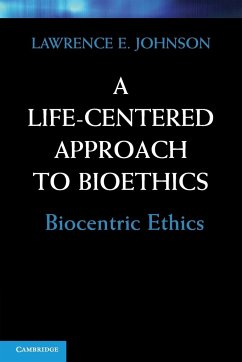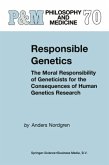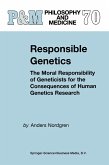Approaches bioethics on the basis of a conception of life and what is needed for the affirmation of its quality in the most encompassing sense. Johnson applies this conception to discussions of controversial issues in bioethics including euthanasia, abortion, cloning and genetic engineering. His emphasis is not on providing definitive solutions to all bioethical issues but on developing an approach to coping with them that can also help us deal with new issues as they emerge. The foundation of this discussion is an extensive examination of the nature of the self and its good and of various approaches to ethics. His bioethic is integrally related to his well-known work on environmental philosophy. The book also applies these principles on an individual level, offering a user-friendly discussion of how to deal with ethical slippery slopes and how and where to draw the line when dealing with difficult questions of bioethics. Applies a discussion of the nature of human life to bioethics, examining how to approach bioethical issues. A good bioethic affirms the value of life and seeks to improve its quality. Lawrence E. Johnson applies this definition to discussions of controversial bioethical issues including euthanasia, abortion, cloning and genetic engineering.
Hinweis: Dieser Artikel kann nur an eine deutsche Lieferadresse ausgeliefert werden.
Hinweis: Dieser Artikel kann nur an eine deutsche Lieferadresse ausgeliefert werden.
'By conceptualizing life as a process rather than a substance, and by identifying selves as life-processes, Johnson provides us with an innovative approach to the perennial question of how we ought to live our lives. Our good is our health, and our health is an activity whose trajectory changes over the course of our lives. The effects of this sensible thesis ramify throughout a host of urgent contemporary moral issues. I strongly recommend Johnson's accessible work.' Mark H. Bernstein, Joyce and Edward E. Brewer Chair in Applied Ethics, Purdue University








